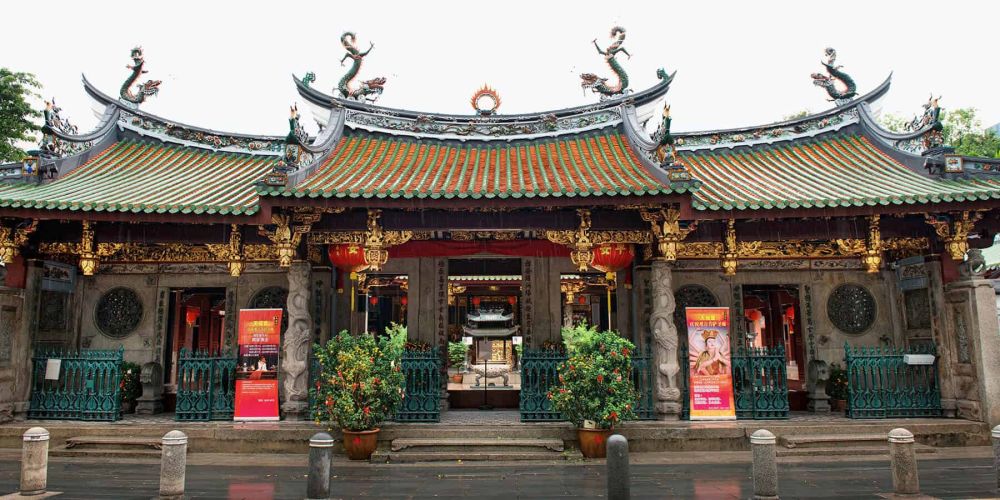

The Thian Hock Keng Temple, also known as the Tianfu Temple, holds a prestigious place in the cultural and historical heart of Singapore. It is one of the oldest and most important Hokkien temples in the country. Built with traditional southern Chinese architectural style, the temple dates back to 1839. It was constructed in dedication to Mazu, the Chinese sea goddess, to ensure the safety of Chinese immigrants who made the perilous journey from China to Singapore.
This imposing structure stands testament to the deep spiritual roots and the architectural finesse brought to Singapore by its early Chinese settlers. Notably, the temple gained recognition as a national monument in 1973, solidifying its importance in Singapore's historical narrative.
Over the years, Thian Hock Keng Temple has evolved into more than just a place of worship. It is now a must-visit destination for tourists interested in Singapore's multicultural tapestry. Visitors are treated to intricate carvings, colorful tiles, and a sense of tranquility that contrasts with the bustling Chinatown surroundings.
Tourism in Singapore has been an essential part of the nation's economic growth and diversification strategy. In the 1980s, the government began to invest heavily in tourism, building landmarks such as the Singapore Zoo and Night Safari. The establishment of the Singapore Tourism Board in 1964 was a pivotal moment, steering the country to become a top destination in Asia for leisure and business travel.
The development continued with the opening of the iconic Marina Bay Sands and the expansive Gardens by the Bay, which further propelled Singapore's image as a futuristic city with cultural depth.
In recent years, Singapore's tourism trends have shifted towards sustainability and experiential travel. The city-state is focusing on offering eco-friendly attractions, with an emphasis on green spaces and conservation areas. Moreover, there is a growing trend of promoting local experiences and cultural heritage, such as the vibrant neighborhoods of Chinatown, Little India, and Kampong Glam.
Culinary tourism has also become particularly popular, as the city-state boasts a diverse food scene that mirrors its cultural richness. Lastly, as technology advances, Singapore is also embracing the digital transformation of the tourism sector by offering virtual reality experiences of its attractions and investing in smart tourism initiatives.